Archaeological Institute of America
Deadline: June 1, 2025
The Excellence in Undergraduate Teaching Award Committee invites nominations for next year’s award. This prize may be awarded to up to one individual every year and includes a certificate of award. Individuals worthy of this award must have demonstrated excellence in the teaching of archaeology; developed innovative teaching methods or interdisciplinary curricula; demonstrated attention to issues of diversity and inclusion among their students and/or curriculum; a minimum of five years of teaching experience prior to being nominated, currently be engaged in teaching; and have been AIA members in good standing for at least two consecutive years.
Nominations should be made by letter and accompanied by a dossier of supporting materials. They should be made by individuals familiar with the candidate’s teaching, such as administrators, departmental chairpersons or colleagues, former students, or faculty in other departments or institutions. Dossiers should include:
1) The nominating letter indicating how the candidate meets the criteria of the award
2) A current curriculum vitae of the nominee;
3) Four letters of recommendation, including at least one each from a student, a colleague, and academic superior;
4) A brief description of all relevant courses taught during the past five years, including some representative syllabi and course materials.
5) A brief description of how the nominee engages with diversity and inclusion. Considerations may include teaching a diverse and inclusive curriculum, promoting an awareness of diverse perspectives and experiences, and/or engagement and empowerment of students from traditionally underrepresented backgrounds.
Completed nominations should be received by June 1. Electronic submission is preferred. Please send materials to the address below.
The committee will review nominations and make a decision by October. This decision then needs to be approved by the AIA’s Governing Board. In November, AIA Staff will contact all nominators regarding the status of their nomination. The winner will be celebrated at the Awards Ceremony in January.
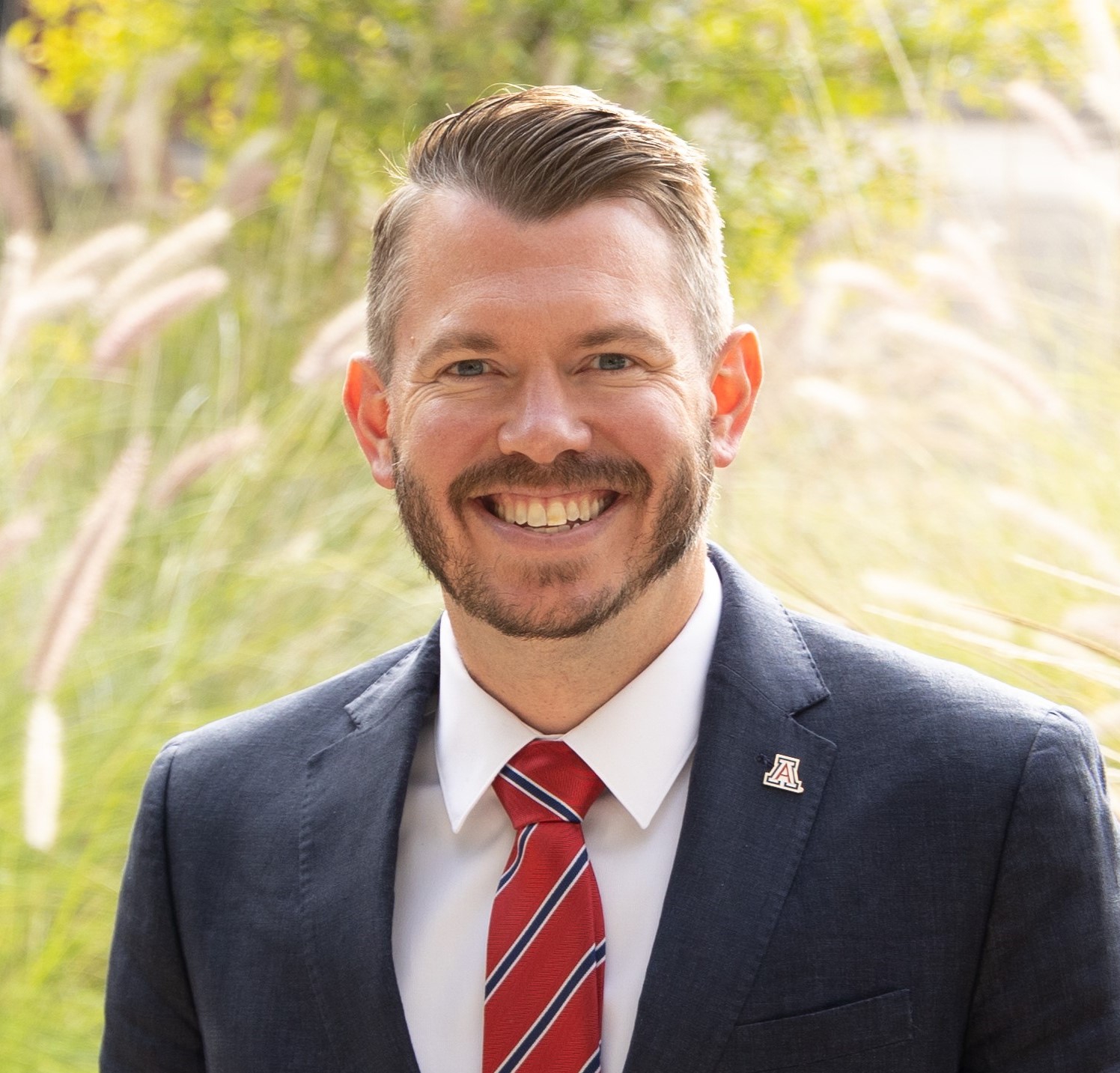
2025
The Archaeological Institute of America is pleased to present the 2025 Excellence in Undergraduate Teaching Award to Dr. Robert Stephan. The pedagogical gifts and determination of Dr. Stephan, Associate Professor of Practice in the Department of Classics at the University of Arizona, have had an enormously positive impact on tens of thousands of students and his department at large. He is a passionate and innovative teacher, responsible primarily for teaching large introductory-level courses, which arrest the attention of majors and nonmajors alike. In a single year, he reaches thousands of students.
Prior to the Covid-19 pandemic era, Dr. Stephan was already ahead of the curve when it came to teaching with digital technologies, and his facility with digital learning has still grown since then. His adept deployment of digital technologies makes it appear that he is on-site as he teaches about ancient places and monuments, and he is a master of storytelling, prompting one colleague to observe: “His lectures are more like National Geographic specials than classroom lectures.”
He infects his students with his passion for understanding the past so much that the doubling of the number of Classics majors over the past five years can be attributed in large part to his teaching in the introductory courses. At the University of Arizona, he has taught a broad range of courses, many with enticing titles. Some examples include Pyramids and Mummies: The Pharaoh in Ancient Egyptian Society; Meet the Ancients: Gateway to Greece and Rome; Money and Power: The Rise and Fall of the Ancient Economy; Performance, Sport, and Spectacle in the Ancient Mediterranean; Mind-Altering Substances in the Ancient World; and Intercultural Competence: Culture and Identity.
Dr. Stephan demonstrates his skill as a teacher in virtually every imaginable way. Beyond the classroom, he presents research on pedagogy, publishes on teaching practices, has co-led the university’s study abroad program in Greece, and has served his department as Director of Undergraduate Studies and Recruitment since 2017. Even after students take his courses, he remains engaged with them as a mentor and advisor and encourages students to pursue double majors. He is an instructor committed to bridging disciplines in order to make the past come alive for his students, and he serves as a model for his colleagues.
He has already been decorated with numerous teaching awards at his home institution: the Leicester and Kathryn Sherrill Creative Teaching Award, the Margaret M. Briehl and Dennis T. Ray Five Star Faculty Award, the Gerald J. Swanson Prize for Teaching Excellence, the College of Humanities Distinguished Teaching Award, and the College of Humanities Distinguished Undergraduate Advising/Mentoring Award and clearly merits adding to them this AIA teaching award.
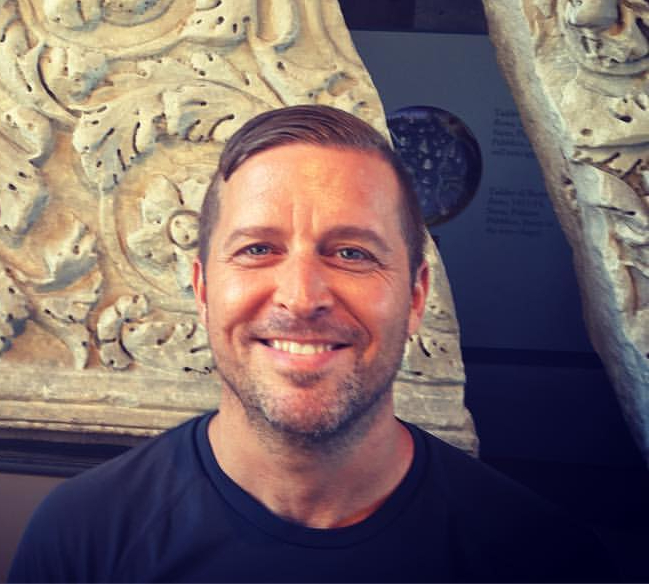
The Archaeological Institute of America is pleased to present the 2024 Excellence in Undergraduate Teaching Award to Dr. Sinclair Bell.
As Professor of Art History at Northern Illinois University, Dr. Bell is a paragon of excellence in undergraduate teaching. He is the rare sort of teacher who artfully combines accessibility, storytelling, passion, and mentorship with great rigor, high standards, deep learning, and individual research to promote student growth and discovery. His extraordinary talents have already been recognized by colleagues at his institution, as he currently holds the title of Presidential Teaching Professor (2021-2025).
One of the most impressive dimensions of Dr. Bell’s teaching portfolio is the range of topics for courses that tie the ancient world and archaeology to students’ interest in contemporary issues and theories. His courses bring lenses of gender, sexuality, performance, race, and ethnicity, and have done so from early in his career. These themes are found not only in undergraduate seminars and graduate classes, but also appear in survey courses taken by majors and non-majors. In teaching introductory-level courses, he entices many students to further coursework in ancient art.
A prevailing theme in both Dr. Bell’s student teaching evaluations and in nominations from his students and colleagues is the inspiring and enduring nature of the lessons he imparts to his students. One student commented: “He constantly challenged his students to do their best and encouraged them to develop the skills to become not only successful students, but also passionate lifelong learners.”
Dr. Bell is an extraordinarily effective teacher and exceptional mentor who brings his vast knowledge to the classroom while fostering an atmosphere supportive of question and debate. His ease with the material comes from years of close contact with the material culture of the ancient Mediterranean world. He inspires his students to excel in his courses, to take more ancient art courses, and to go on excavations. For all of these reasons, and more, Dr. Sinclair Bell is a most worthy recipient of the Archaeological Institute of America’s 2024 Excellence in Undergraduate Teaching Award.
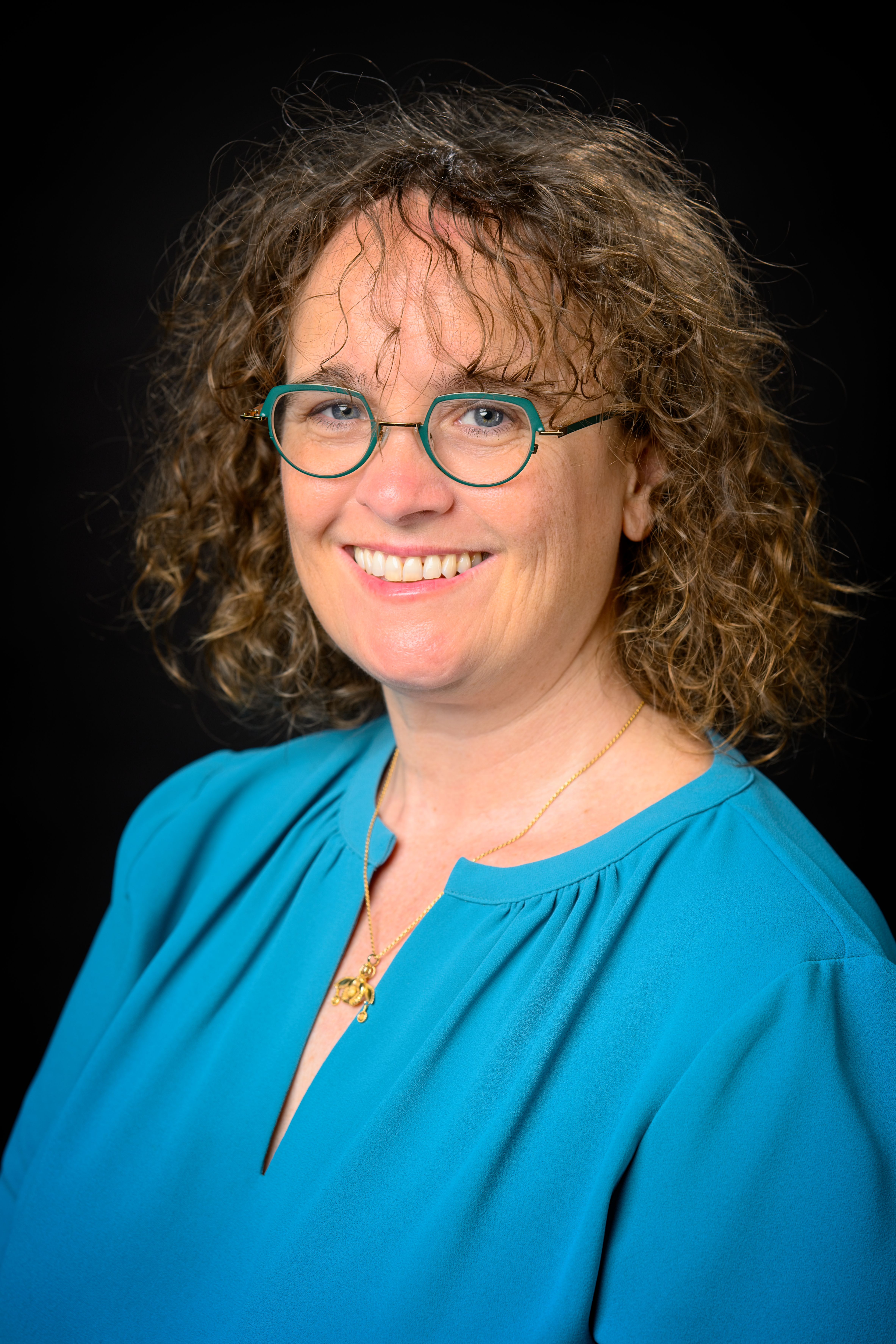
2023
The Archaeological Institute of America is pleased to present the 2023 Excellence in Undergraduate Teaching Award to Dr. Joanne Murphy.
A combination of exceptional teaching skills, an indomitable spirit, and energetic leadership is rare to find in a single person, and yet Dr. Joanne Murphy embodies each and every one of these qualities. Through her 18 years of rigorous and innovative teaching experience, she has a taught an impressive range of courses: introductory and upper-level Ancient Greek, Greek Civilization, Mythology, Roman Literature, Women in Antiquity, Ancient Sports and Society, Greek Archaeology, Archaic Greece, Archaeological Theory, and Archaeology of Death. She also teaches an archaeological field school through the Kea Archaeological Survey, which she has directed since 2011.
Students and colleagues praise her teaching prowess and close mentorship of students, which provides them with the critical skills and tools for success in the field and beyond. One example of her deep commitment in service of undergraduate education, and especially to support underserved populations, is her 2018 grant for $200,000 from the Andrew W. Mellon Foundation, for a project entitled “Transforming Undergraduate Education at a Minority Serving Institution: Integrating Interdisciplinary Research Across the Humanities.” That project created opportunities for undergraduates to participate in faculty research groups and also allowed her to organize nine workshops for faculty that allowed them to redesign courses to incorporate undergraduate research opportunities into their curricula. The grant she spearheaded resulted in the redesign of 40 courses, across 13 disciplines, and significantly increased the capacity for undergraduate research opportunities at the University of North Carolina – Greensboro, immediately affecting 750 students. This effort exemplifies her commitment not just to the field of Classical Studies and Archaeology, but to the craft of undergraduate education at large.
One student described the opportunities and professional research experiences as a turning point in their life. Indeed, Dr. Murphy’s unflinching commitment to undergraduate teaching has no doubt transformed the lives and trajectories of hundreds of students through her career with hundreds more to come. She is an asset to a university highly ranked for the social mobility it provides students, and her transformative work will have a long-lasting impact there and upon our wider profession. For all of these reasons, and more, Dr. Joanne Murphy is a most worthy recipient of the Archaeological Institute of America’s 2023 Excellence in Undergraduate Teaching Award.
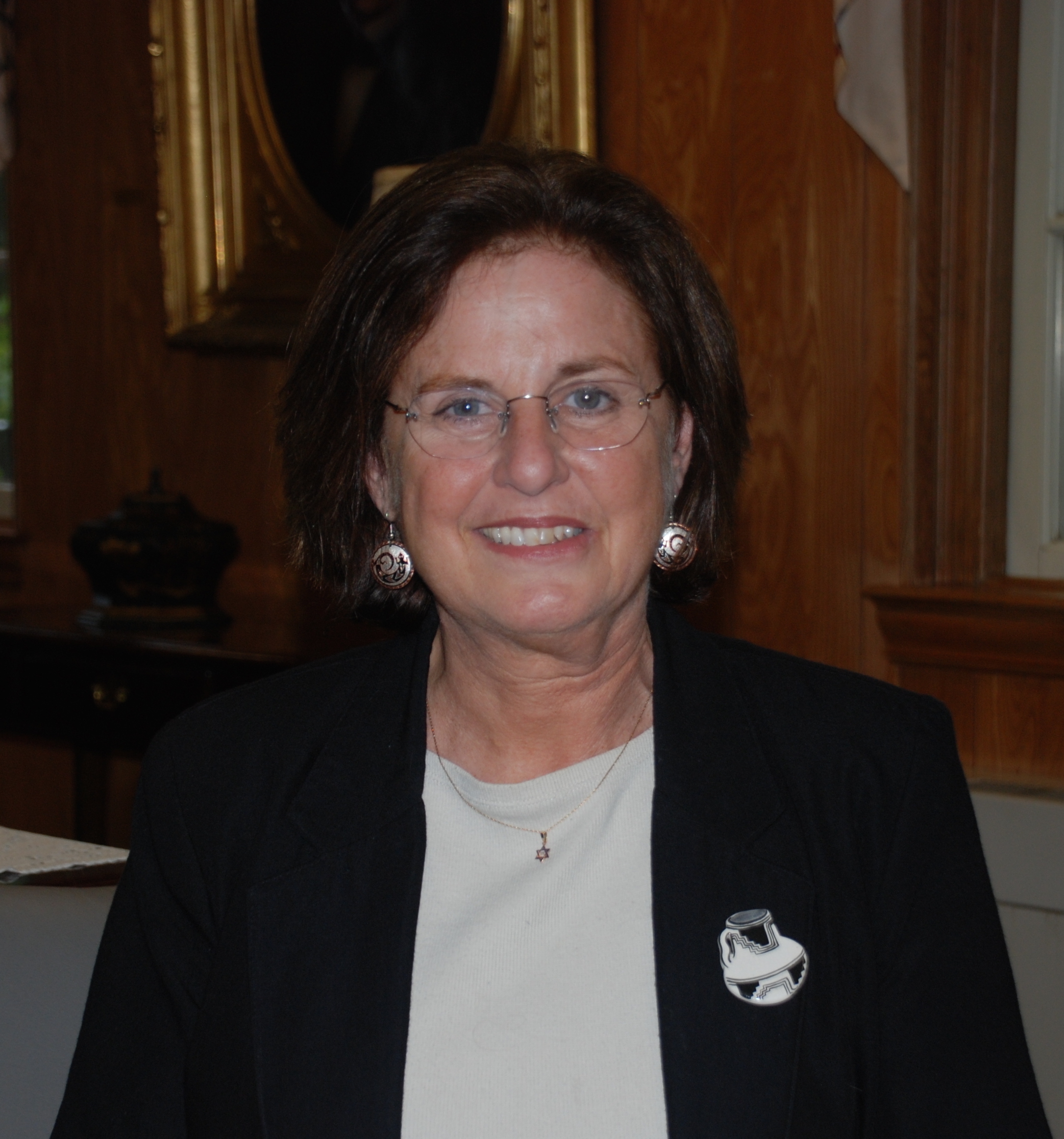
2022
The Archaeological Institute of America is pleased to present the 2022 Excellence in Undergraduate Teaching Award to Prof. Pamela Gaber.
In a word, Prof. Pamela Gaber’s teaching prowess can be described as phenomenal. With 40 years of teaching experience under her belt, she is a renowned mentor with an enthusiastic and appreciative following of students – past and present – who ascribe their successes and growth to her excellent teaching and careful direction. Prof. Gaber is universally known for going above and beyond as a teacher, encouraging students to participate in research programs and present research at conferences, and counseling them to pursue post-graduate studies and careers that align with their skills and interests.
Never content with the status quo as a teacher, she developed a program in Cyprus called “Afterlife of Artifacts,” first taught in 2018 and offered again in 2021, which teaches students about the processing of artifacts after excavation as they move from the ground to archaeological storerooms and museums. Since 2003, when her excavation joined with Lycoming College, she has consistently supervised and instructed students in the field. The popularity of that field program was so great that the college hired another archaeologist to support the influx of students in the archaeology curriculum.
To Prof. Gaber’s colleagues, her distinction as a teacher is evident. They note that her establishment of the field school at Idalion, Cyprus is a “crowning achievement” and that “her passion for teaching and training students is unrivalled.” The provost and dean of Lycoming College describe Prof. Gaber as “a force in modernizing and expanding the archaeology curriculum.” Students and colleagues both characterize her as selfless, giving, and kind, and colleagues say her enthusiasm for teaching is infectious. Prof. Gaber is a most worthy recipient of the Archaeological Institute of America’s Excellence in Undergraduate Teaching Award.
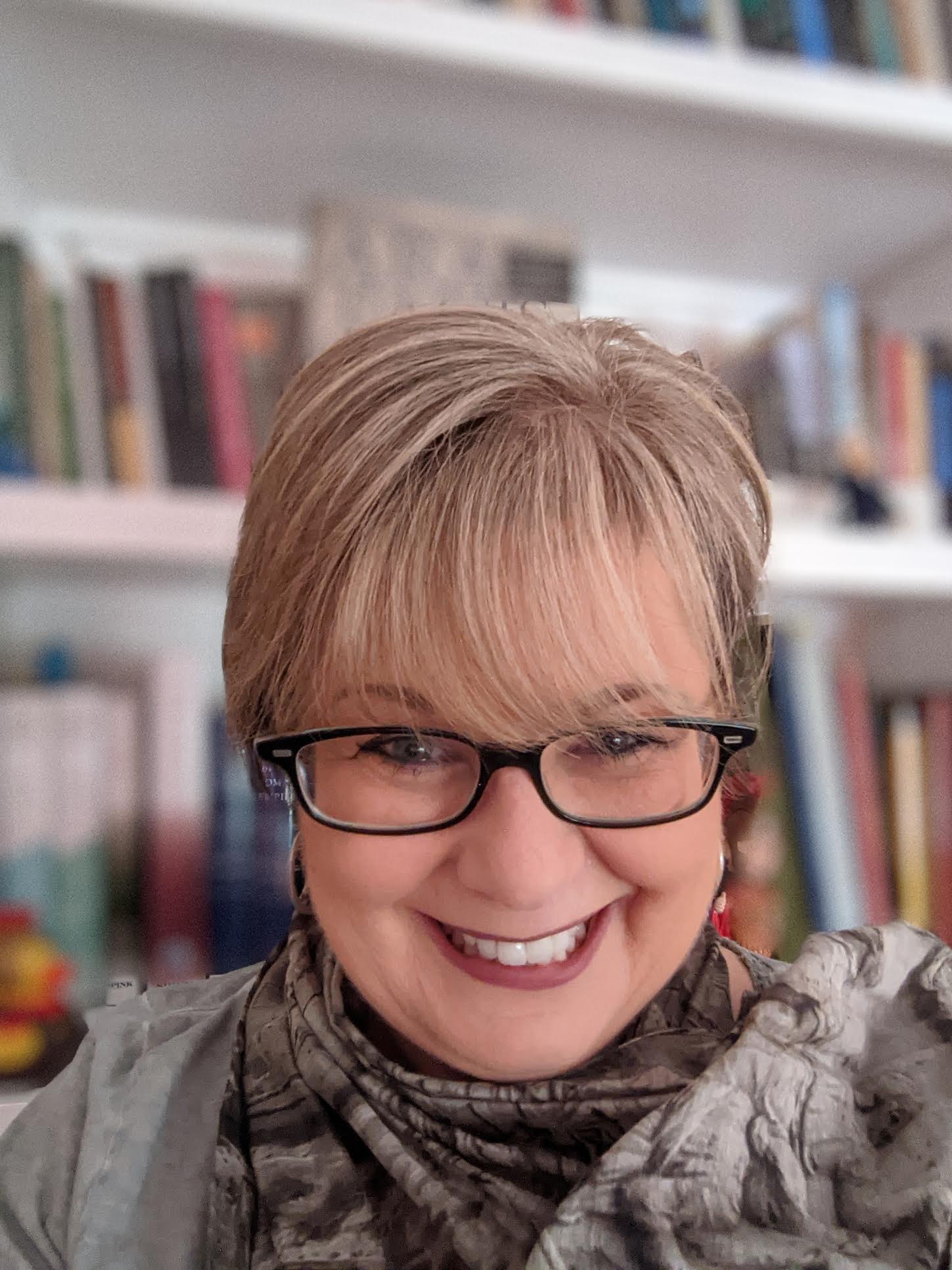
2021
The Archaeological Institute of America is pleased to present the 2021 Excellence in Undergraduate Teaching Award to Dr. Diane Conlin.
Dr. Conlin is a distinguished teacher, committed to rigor, innovation, and experiential learning. She is already known internationally for her deep and compelling scholarship on subjects such as the Ara Pacis and the Campus Martius, and her book Political Art in Flavian Rome is much anticipated. Her research does not detract from her teaching but rather powerfully informs it, as she brings the latest scholarship and debates into the classroom and boldly exemplifies to her students the process of discovery.
Her own enthusiasm for the study of the ancient world imbues her students with a passion for intellectual discovery in the classroom and beyond. As a faculty member at the University of Colorado at Boulder, she has already received several awards in recognition of her superior teaching: the Boulder Faculty Assembly Excellence in Teaching Award, the “Best Should Teach” Gold Award, and she was also named the President’s Teaching Scholar (a lifetime appointment).
Student comments about her teaching are consistent in their description of her passion, depth of knowledge, helpfulness, availability, and creativity in the classroom. Her course on the art of Roman coinage, for example, allows students the ability to work with objects held by the university museum and to organize exhibits; it is a high point for many of her students. She also played a pivotal role in the overhaul of the Classics curriculum at the University of Colorado and she developed an archaeological field school at the Villa of Maxentius. Dr. Conlin’s commitment to teaching extends beyond the university level, for she reaches out to work with faculty and students at the Boulder Valley School District.
Dr. Conlin is a transformative teacher who leaves an indelible mark on her students, shaping them as critical thinkers and archaeologists, and as informed and reflective citizens. Dr. Conlin exemplifies great teaching and is a model recipient for the AIA’s Excellence in Undergraduate Teaching Award.
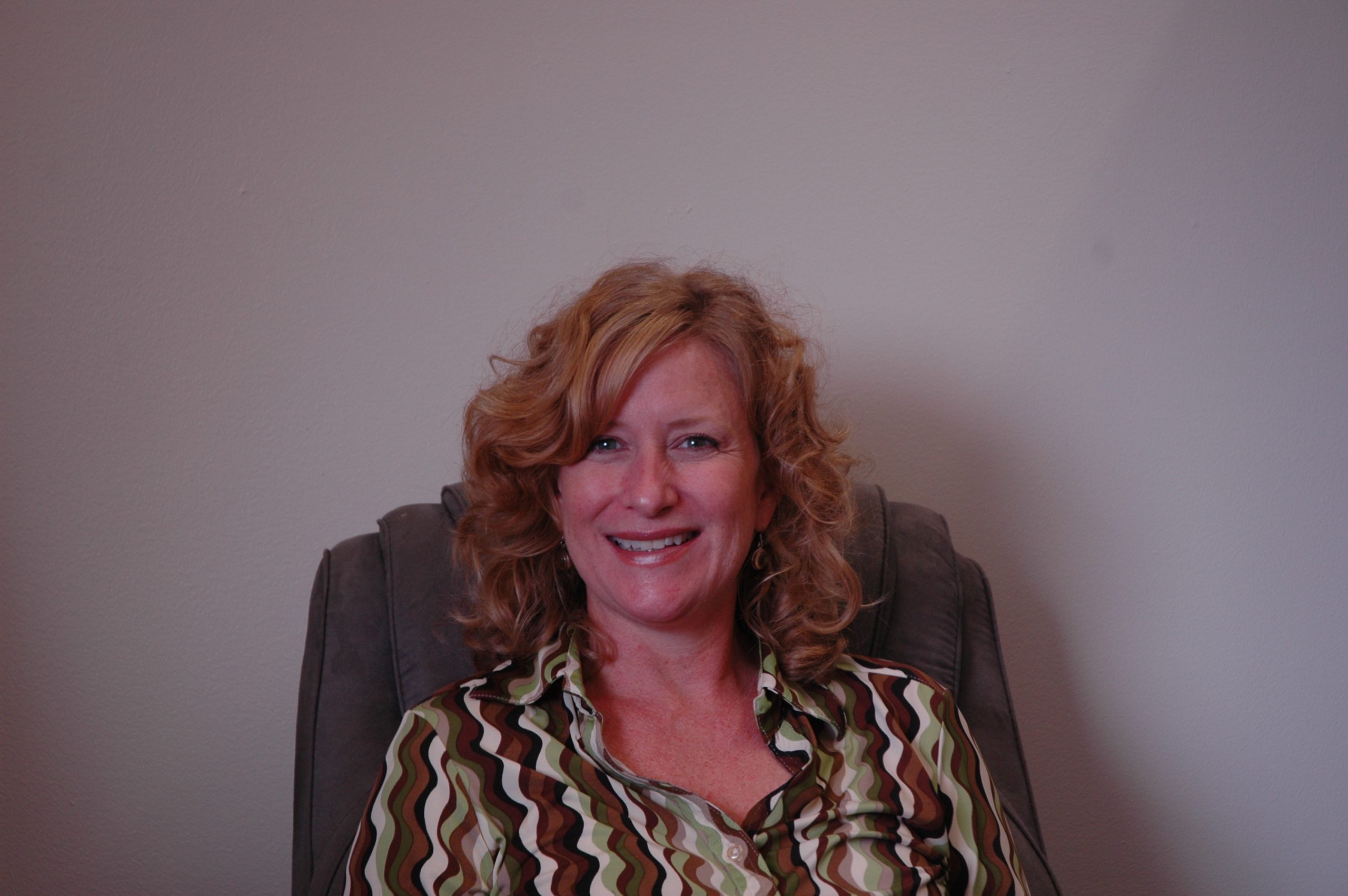
2020
The Archaeological Institute of America is pleased to present the 2020 Excellence in Undergraduate Teaching Award to Dr. M. Kathryn Brown.
Dr. Brown is a decorated and highly respected teacher in the University of Texas system, having already received several awards and distinctions for teaching excellence. She is, indeed, something of a celebrity at her university, known for her innovative methods and superior student engagement. In recognition of her excellence in teaching and research, she was named Lutcher Brown Endowed Professor of Anthropology at the University of Texas at San Antonio by the university president.
Dr. Brown stands out for her dedication to experiential learning, both in the classroom and at archaeological field schools, and her deep commitment to careful mentorship and advocacy for her students. Her courses frequently serve as a pedagogical model for colleagues at her institution and she has been consistently involved in curriculum development at a very high level. Her support of students and educational outreach, both in Texas and in Belize near her archaeological site, are noteworthy.
Students cherish Dr. Brown’s skills as a teacher, her devotion to the profession, and her genuine interest in their lives and aspirations. She excites her students and encourages them, taking a personal interest in their development as future archaeologists. She is renowned for her active support of undergraduates through her tireless searches for funding to support any student who wishes to participate in fieldwork, leaving an indelible mark on each and every student who has the opportunity to work with her.
Her tireless work as a teacher extends beyond the classroom to the community, where she engages the public with her tables for Archaeology Day. For all these reasons, the Archaeological Institute of America is delighted to bestow on Dr. Brown the 2020 Excellence in Undergraduate Teaching Award.
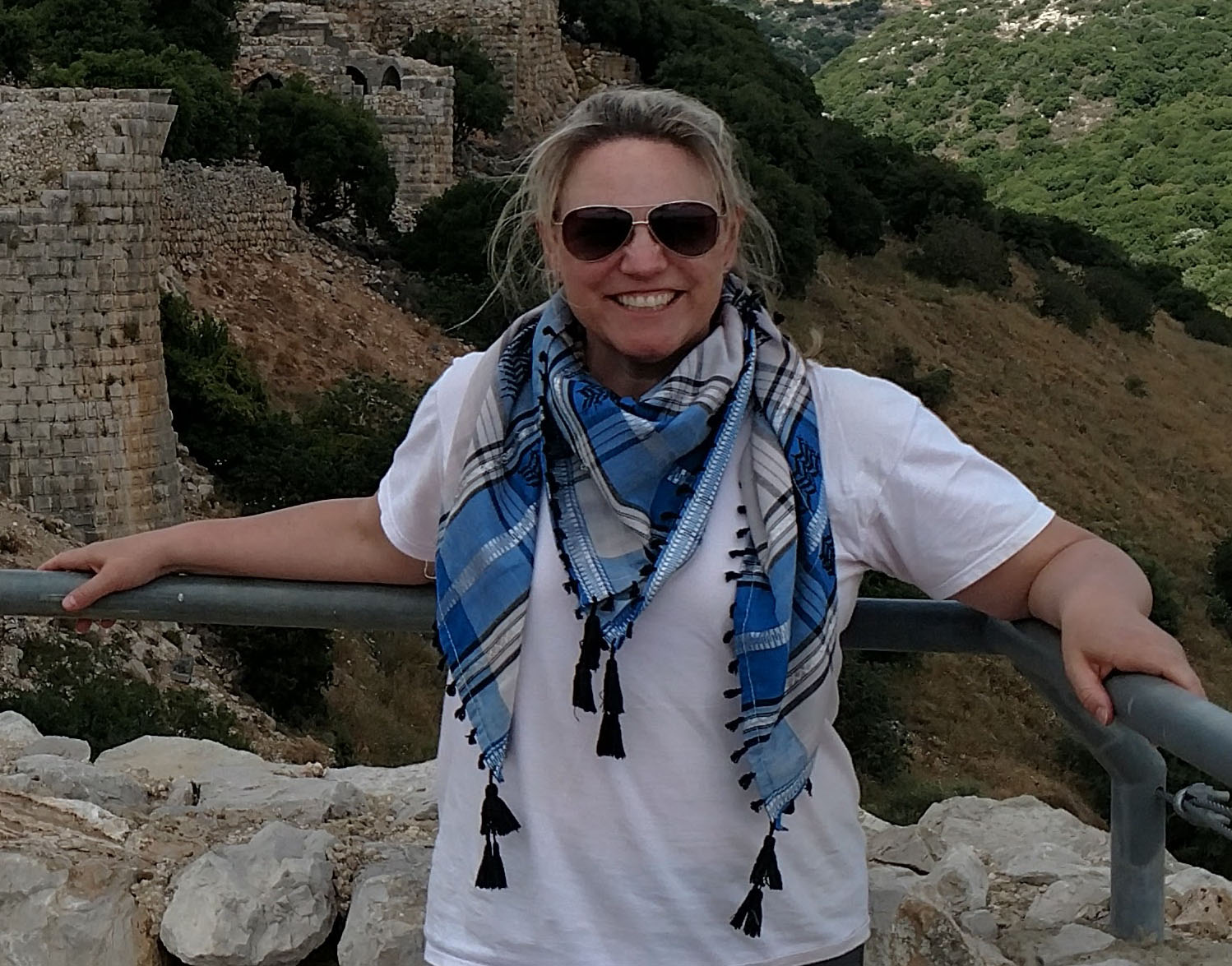
2019
The Archaeological Institute of America is pleased to present the 2019 Excellence in Undergraduate Teaching Award to Dr. Jennifer Ramsay, of the State University of New York at Brockport.
In her archaeology and anthropology courses, Dr. Ramsay consistently encourages active learning and critical thinking. Unusually generous with her time, she is a prolific supervisor of independent study projects and internships. She also takes her enthusiasm to younger audiences, providing outreach to schoolchildren and authoring articles in young people’s magazines such as Dig and Calliope.
Dr. Ramsay has renovated her institution’s anthropology lab at the Brockport campus of SUNY, where she has established a Museum Studies and Public History minor in collaboration with the history department and the Emily Knapp Museum and Library.
Finally, as director of the field school for the Petra Garden and Pool Complex project since 2004, she has mentored countless students in archaeological fieldwork and methods. She is a hands-on field instructor, rotating from trench to trench to demonstrate trowel and pick skills, organizing field trips to cultural centers and natural wonders in Jordan, and caring for students through bouts of illness or culture shock.
For all these reasons, the Archaeological Institute of America recognizes Dr. Jennifer Ramsay with the 2019 Excellence in Undergraduate Teaching Award.
2018
For his over two decades of teaching at the University of Arizona where he brings archaeology to life as few have done before.
2017
For her engaging teaching style, characterized by a strong emphasis on custom-designed, active-learning opportunities outside the classroom and the use and adaptation of modern visualization techniques to map and model ancient sites and buildings.
2016
For her three decades of engaging and enriching those she teaches and her multidisciplinary approach to the classical world.
2015
For over thirty years of dedicated teaching, bringing the immediacy of new ideas and discoveries directly into the classroom and instilling in her students a passion for original research.
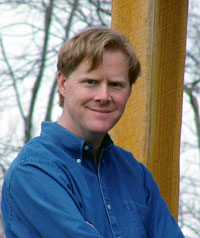
2014
Steven L. Tuck is Professor and Chair of Classics at Miami University. He received his BA in History and Classical Languages at Indiana University (1986) and his PhD in Classical Art and Archaeology from the University of Michigan (1997). The postdoctoral Arthur and Joyce Gordon Fellowship in Latin Epigraphy at The Ohio State University (1997) concluded his education forcing him to seek gainful employment. He has received several awards, including the E. Phillips Knox Teaching Award, the Outstanding Professor Award, and the Rackham Research partnership Award, among others. Prof. Tuck’s work focuses on the archaeology of the Roman provinces, topography and monuments of ancient Rome, and Latin epigraphy. In 2006, he published Latin Inscriptions in the Kelsey Museum: The Dennison & De Criscio Collections (University of Michigan Press), which presented all of the Latin inscriptions in the Kelsey Museum for the first time.
2013
Elise A. Friedland is Assistant Professor of Classics and of Art History in the Department of Classical and Near Eastern Languages and Civilizations at The George Washington University. She holds a B.A. in Classics from Williams College and an M.A. and Ph.D. in Classical Art and Archaeology from the University of Michigan. Before joining the faculty at GW, she taught at Rollins College (Winter Park, Florida) for ten years. A specialist in Roman art and archaeology, Roman sculpture, the Roman Near East, and museum studies, she serves as the sculpture specialist for the Excavations at the Sanctuary of Pan at Caesarea Philippi/Banias in Israel and for the site of Jerash in Jordan. Friedland has also worked as a museum educator at the Museum of Fine Arts, Houston, and as a curator at the University of Michigan’s Kelsey Museum of Archaeology and for two archaeological site museums in Lamta (ancient Lepti Minus), Tunisia and at Zippori National Park (ancient Sepphoris), Israel. She has published two books: a co-edited volume, entitled The Sculptural Environment of the Roman Near East: Reflections on Culture, Ideology, and Power (2008, Peeters Press) and a monograph, The Roman Marble Sculptures from the Sanctuary of Pan at Caesarea Philippi/Panias (Israel) (ASOR’s Archaeological Report Series 2012). She is currently at work on a second monograph, Seeing the Gods: Sculptures, Sanctuaries, and the Roman Near East, and is co-editor of the in-progress Oxford Handbook of Roman Sculpture. For the AIA, Friedland has served as President of the Central Florida Society, a member of Lecture Program Committee and the Societies and Membership Committee, a national lecturer, and is currently president of AIA’s Washington, D.C. Society.
2012

2011
The Archaeological Institute of America recognizes Susan T. Stevens of Randolph College as the 2011 recipient of the Excellence in Undergraduate Teaching Award.
Stevens holds a bachelor’s in history from the University of South Carolina and a master’s and doctorate in classics from the University of Wisconsin–Madison. She was appointed to the faculty at Randolph College in 1993, was promoted to full professor in 2005, and now serves as department chair in classics and as the Catherine E. and William E. Thoresen Chair of Humanities.
Stevens has shown herself to be a brilliant teacher: creative in her design and implementation of new course offerings, gifted in her ability to make ancient material culture come alive for her students, and utterly devoted to her undergraduates, whom she has mentored with unfailing generosity and care. Her course Three Ancient Cities: Athens, Rome, and Alexandria presents a multifaceted lens through which issues of landscape, housing, neighborhoods, water systems, urbanization, ports, commerce, cosmopolitanism, and changes with the coming of late antiquity, Christianity, and Islam are examined.
Year after year she has brought students to her excavations at Carthage, opening for them rich opportunities for fieldwork and for the study and publication of excavated materials. Back at home, Stevens makes use of artifacts from Randolph College’s collection of antiquities in her class Archaeology of Daily Life. Here, students get further firsthand experience in the study, analysis, publication, and display of objects including coins, lamps, pottery, sculpture, and decorative arts.
The Archaeological Institute of America is pleased to recognize Susan T. Stevens, a “hero” to her students, with this award.
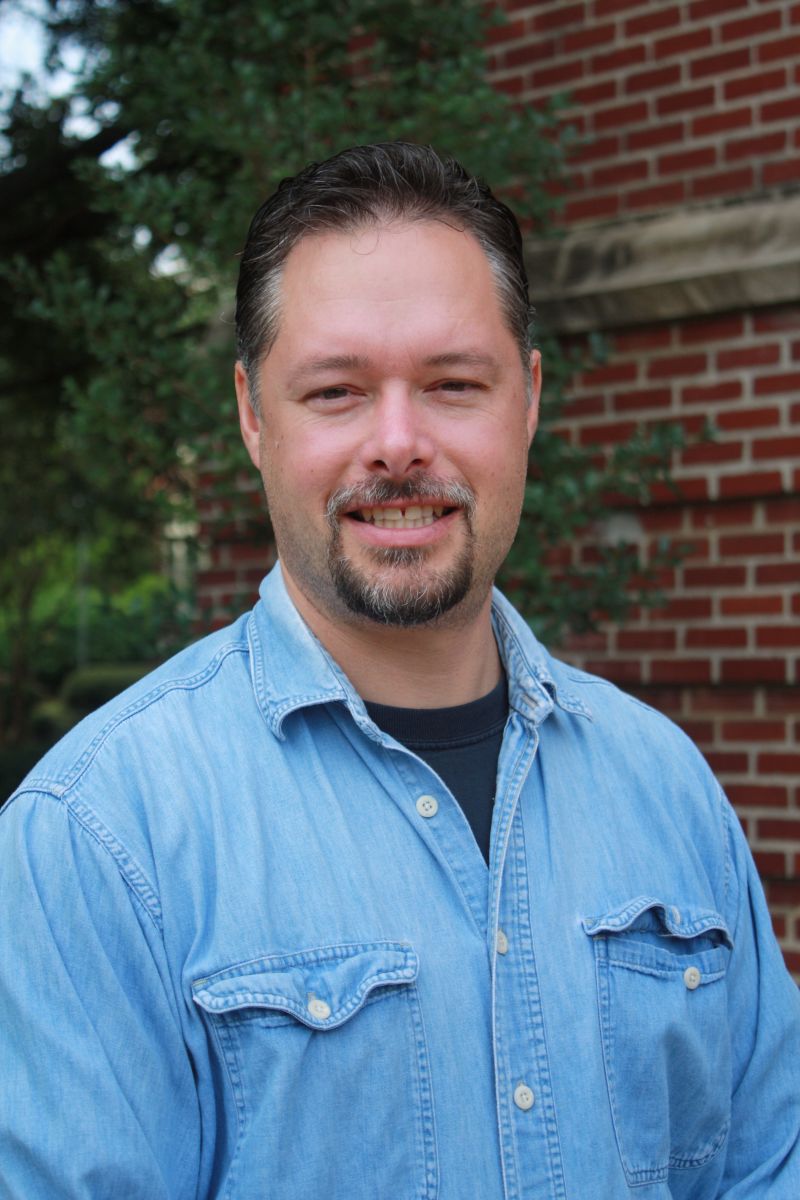
2010
The Archaeological Institute of America recognizes Michael L. Galaty as the recipient of the 2010 Excellence in Undergraduate Teaching Award. Galaty is currently a professor of anthropology in the Department of Sociology and Anthropology at Millsaps College, where he has taught since 1999. At Millsaps, Galaty teaches a wide range of courses in anthropology and archaeology, covering such diverse areas as gender in prehistory, historical archaeology, GIS applications in Mediterranean archaeology, and archaeological field methods. Millsaps recognized him as its 2008 Distinguished Professor, the highest award given by the institution and one that recognizes both outstanding teaching and professional activity.
Colleagues praise Galaty for his ability to bring his own research into the classroom and to provide opportunities for students to engage in archaeological fieldwork. In addition to conducting undergraduate field schools in Virginia, he has taken students to his research project in Albania and has obtained grants to develop an undergraduate archaeological chemistry laboratory at Millsaps. His students state that his courses are challenging, the readings tough, and his expectations for them high; they note that he strongly emphasizes discussions and active analysis rather than lecturing.
In recognition of his exemplary dedication to his students and his exceptional performance as an undergraduate teacher, the Archaeological Institute of America is pleased to name Michael L. Galaty the 2010 recipient of the Excellence in Undergraduate Teaching Award.
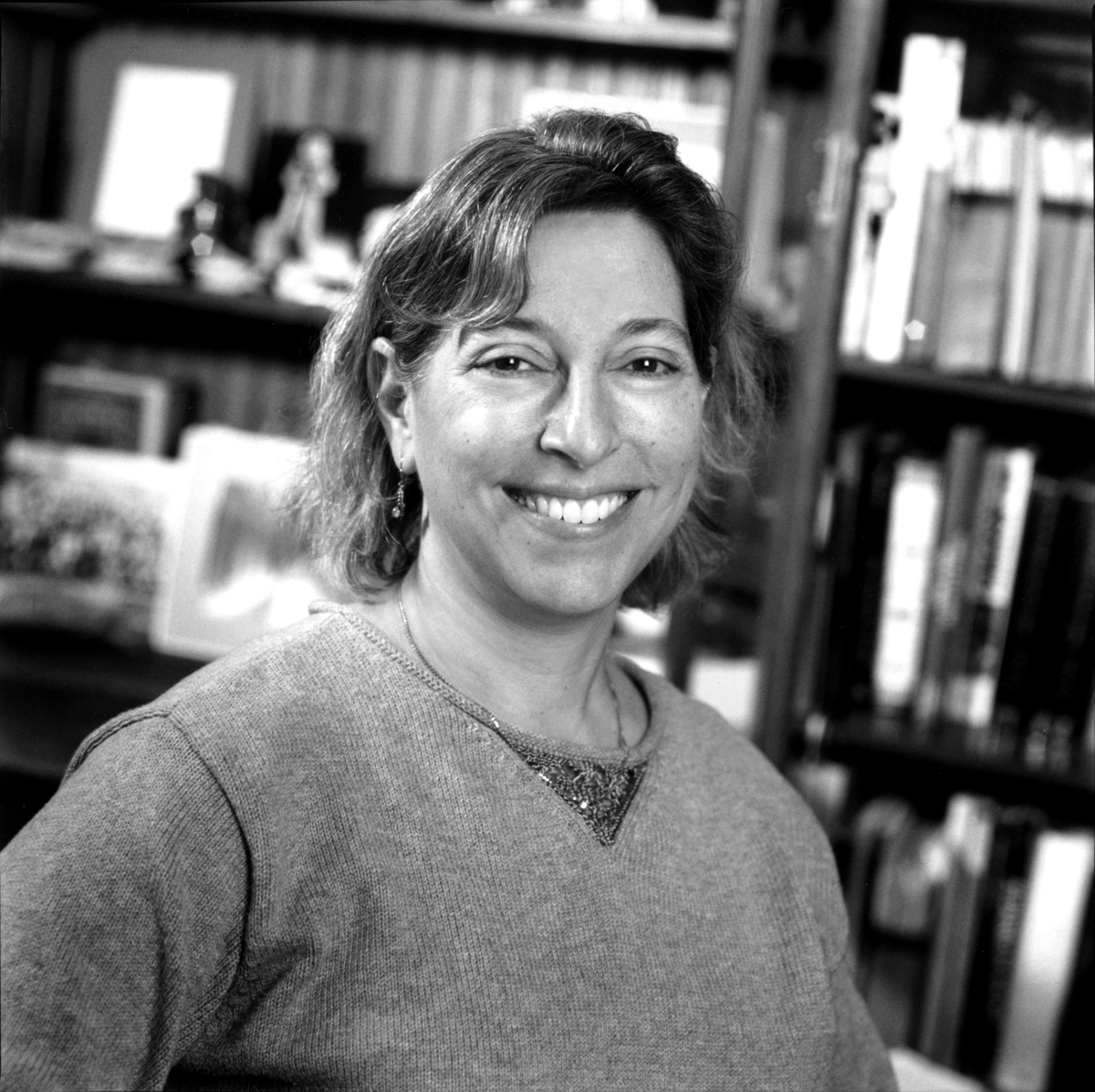
2009
The Archaeological Institute of America is delighted to recognize Dr. Andrea M. Berlin as the recipient of the 2009 Excellence in Undergraduate Teaching Award. Dr. Berlin received her BA degree in Classical and Near Eastern Studies from the University of Michigan, an MA in Syro-Palestinian Archaeology from the University of Chicago, and a Ph.D. in Classical Art and Archaeology from the University of Michigan. She joined the faculty of the University of Minnesota in 1997, where she is currently the Morse-Alumni Distinguished Teaching Professor of Archaeology in the Department of Classical and Near Eastern Studies. Her department chair praises the energy she has brought to the department’s undergraduate curriculum, noting that the undergraduate major in archaeology was her creation and that she has been the driving force behind its curriculum. A younger colleague highlights Prof. Berlin’s constant willingness to help other faculty with course design and implementation; she has worked across departmental and even college boundaries to collaborate with faculty from other disciplines in creating new courses.
Dr. Berlin teaches a variety of undergraduate archaeology courses at the University of Minnesota, including ones on Greek, Roman, and Near Eastern topics, especially the archaeology of Israel. Her colleagues applaud her effectiveness in the classroom, observing that she transmits her own enthusiasm to the students and regularly is rated as the best teacher in the department. She exhibits an outstanding ability to engage students in the practice of archaeological interpretation by beginning with relatively simple problems and gradually leading them into increasingly sophisticated analyses. Recommendation letters from students stress that Dr. Berlin does not simply lecture: her carefully constructed classroom exercises make learning archaeology an active and mutual enterprise, not a passive reception of facts. She regularly incorporates articles from professional journals and discussions about them even into introductory classes, displaying a confidence in her students’ ability to grapple with difficult issues. A former student, now pursuing graduate studies, observes that Prof. Berlin carefully tailors not only her classes, but even her speaking style, to the needs of different audiences. Her students warmly praise her kindness, approachability, patience, and willingness to put in long hours working with students and advisees. Nearly all use the same word to summarize their personal experiences with her: “inspiring.”
Prof. Berlin is an active field archaeologist who has worked at numerous sites over the course of her career as a ceramicist and occasional director. The range of her fieldwork is exceptional: Caesarea Maritima and Tel Kedesh in Israel, Coptos in Egypt, Troy in Turkey, Pylos in Greece, and Idalion on Cyprus are only some of the projects on which she has worked. She has authored or edited several books and numerous articles concerning her research. Her students and colleagues emphasize that she actively translates her wide experience and research into her classes. Letters from students who have worked with her in the field point out that she is always teaching, and that she is willing to make time for them in the midst of a hectic excavation season. One says, “Dr. Berlin has the remarkable ability to perceive and create opportunities to contribute to her students in literally every situation that arises, while still accomplishing tasks efficiently and effectively.”
Her service to the discipline and the public is exemplary, ranging from presentations for elementary schoolchildren, to lectures in churches and synagogues throughout the Twin Cities, to national engagements as a speaker for the AIA. Dr. Berlin has served on the editorial boards of a number of professional journals and as an academic trustee of the American Schools of Oriental Research. She has held leadership positions in her own local chapter of the AIA and has been an academic trustee of our organization.
In recognition of her dedication to her students and her outstanding performance as an undergraduate teacher, the Archaeological Institute of America is pleased to name Dr. Andrea M. Berlin the 2009 recipient of the Excellence in Undergraduate Teaching Award.
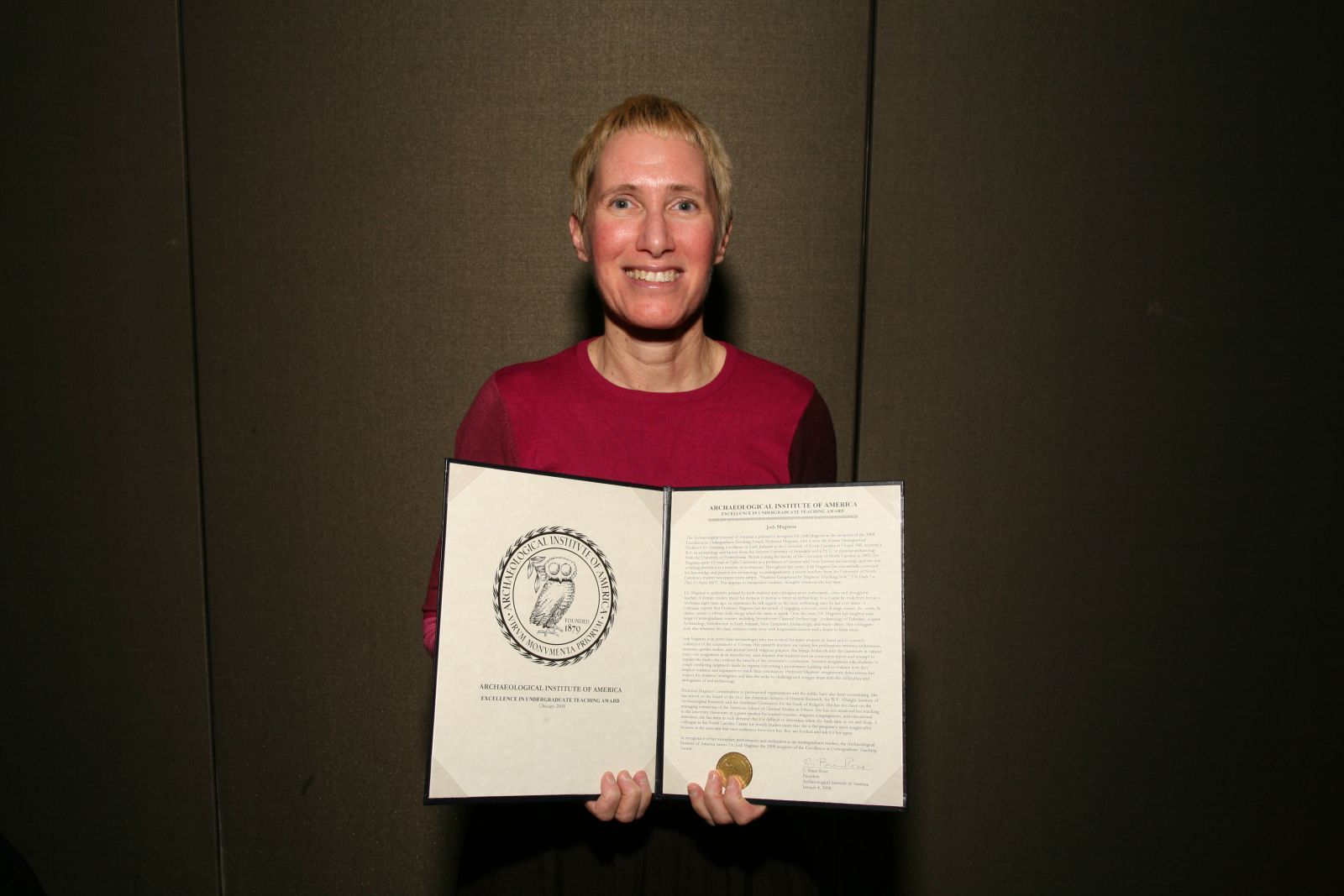
2008
The Archaeological Institute of America is pleased to recognize Dr. Jodi Magness as the recipient of the 2008 Excellence in Undergraduate Teaching Award. Professor Magness, who is now the Kenan Distinguished Professor for Teaching Excellence in Early Judaism at the University of North Carolina at Chapel Hill, received a B.A. in archaeology and history from the Hebrew University of Jerusalem and a Ph.D. in classical archaeology from the University of Pennsylvania. Before joining the faculty of the University of North Carolina in 2003, Dr. Magness spent 10 years at Tufts University as a professor of classical and Near Eastern archaeology, and she was a visiting professor at a number of institutions. Throughout her career, Jodi Magness has successfully conveyed her knowledge and passion for archaeology to undergraduates: a recent headline from the University of North Carolina’s student newspaper states simply, “Students Enraptured by Magness’ Teaching Style” (The Daily Tar Heel, 11 April 2007). This appears to encapsulate students’ thoughts wherever she has been.
Dr. Magness is uniformly praised by both students and colleagues as an enthusiastic, clear, and thoughtful teacher. A former student traces his decision to pursue a career in archaeology to a course he took from her as a freshman eight years ago, an experience he still regards as the most enthralling class he has ever taken. A colleague reports that Professor Magness has the knack of engaging everyone, even in large classes: the room, he claims, seems to vibrate with energy when she starts to speak. Over the years, Dr. Magness has taught a wide range of undergraduate courses, including Introductory Classical Archaeology, Archaeology of Palestine, Aegean Archaeology, Introduction to Early Judaism, New Testament Archaeology, and many others. Her colleagues note that whatever the class, students come away with heightened interest and a desire to learn more.
Jodi Magness is an active field archaeologist who has worked for many projects in Israel and is currently codirector of the excavations at Yotvata. Her research interests are varied; her publications embrace architecture, ceramics, gender studies, and ancient Jewish religious practice. She brings fieldwork into the classroom in various ways: one assignment in an introductory class requires that students read an excavation report and attempt to explain the finds—but without the benefit of the excavator’s conclusions. Another assignment asks students to weigh conflicting judgments made by experts concerning a problematic building and to evaluate how they employ evidence and arguments to reach their conclusions. Professor Magness’ assignments demonstrate her respect for students’ intelligence and that she seeks to challenge and intrigue them with the difficulties and ambiguities of real archaeology.
Professor Magness’ contributions to professional organizations and the public have also been outstanding. She has served on the board of the AIA, the American Schools of Oriental Research, the W.F. Albright Institute of Archaeological Research, and the Southeast Conference for the Study of Religion. She has also been on the managing committee of the American School of Classical Studies at Athens. She has not restricted her teaching to the university classroom: as a guest speaker for learned societies, religious congregations, and educational television, she has been in such demand that it is difficult to determine when she finds time to eat and sleep. A colleague at the North Carolina Center for Jewish Studies states that she is the program’s most sought-after lecturer in the state and that once audiences have seen her, they are hooked and ask for her again.
In recognition of her exemplary performance and dedication as an undergraduate teacher, the Archaeological Institute of America names Dr. Jodi Magness the 2008 recipient of the Excellence in Undergraduate Teaching Award.
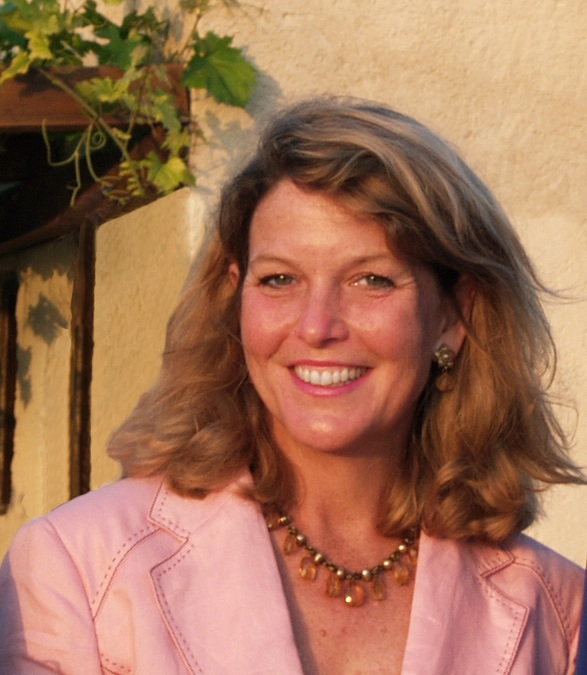
2007
The Archaeological Institute of America honors Dr. Joan Breton Connelly as the recipient of the 2007 Excellence in Undergraduate Teaching Award. Connelly is a professor in the Department of Fine Arts at New York University, where she joined the faculty in 1986. She received her B.A. degree in classics from Princeton and her M.A. and Ph.D. in classical and Near Eastern archaeology from Bryn Mawr College. Her teaching success is no secret at NYU, where she held the Lillian Vernon Chair for Teaching Excellence from 2002 to 2004.
Joan Connelly has taught many undergraduate classes, including surveys in archaeology and art history, as well as upper-level courses on a wide range of topics, especially Greek art and issues relating to cultural property and preservation. She is active in NYU’s core curriculum, developing courses that range from “Conversations of the West, Antiquity, and Modernity: Winners and Losers from the Iliad” to “Star Wars.” Dr. Connelly is regarded by her students and colleagues as one of the university’s finest instructors; their testimony portrays her as a challenging and inspiring professor who makes a profound impression on her students. One of them notes that Dr. Connelly is often in her office until late at night, with lines of students waiting to talk with her about their papers or for a “pep talk” if they are slacking. Several comment that she has remained in touch long after graduation and continues as an important mentor.
Professor Connelly’s courses make outstanding use of New York’s great cultural institutions. Students are required to examine objects in museum collections and then research each object’s function and meaning in ancient context. One of the most interesting aspects of Professor Connelly’s pedagogy is her constantly reminding students to apply these learned analytical skills not only to antiquities but also to contemporary artifacts, buildings, and practices. One assignment, for example, calls for students to identify aspects of landscape and site planning at places such as Delphi and Miletos and then compare those with the layout of New York. Another calls for students to compare the visual experience of ancient theatrical spectacle with modern theater. One student was especially struck by a parallel Dr. Connelly drew between the current controversy over the treatment of Ground Zero and the ancient Athenian debate over the reconstruction of the Acropolis in the wake of the Persian sack.
As the director of NYU’s excavations at Yeronisos in Cyprus, Dr. Connelly also involves undergraduates in archaeological fieldwork. One notes that Connelly teaches not only the basics of archaeological fieldwork but also sensitivity to the local ecology of the island, the importance of a long-range conservation plan, and the importance of working closely with Cypriot archaeologists and ministries. Her students have observed and appreciate her emphasis on building a research team and developing international partnerships with other scholars.
Professor Connelly has given very generously of her time to professional organizations and the public. She has lectured widely at many academic institutions and community organizations across the country. She was appointed by the president of the United States to the State Department’s Cultural Property Advisory Committee in recognition of her work in preservation. The “limitless energy” mentioned by one of her colleagues perhaps explains her ability to manage so many tasks in such an exemplary fashion.
In recognition of her outstanding record as an undergraduate teacher, the Archaeological Institute of America is pleased to name Joan Breton Connelly the 2007 recipient of the Excellence in Undergraduate Teaching Award.
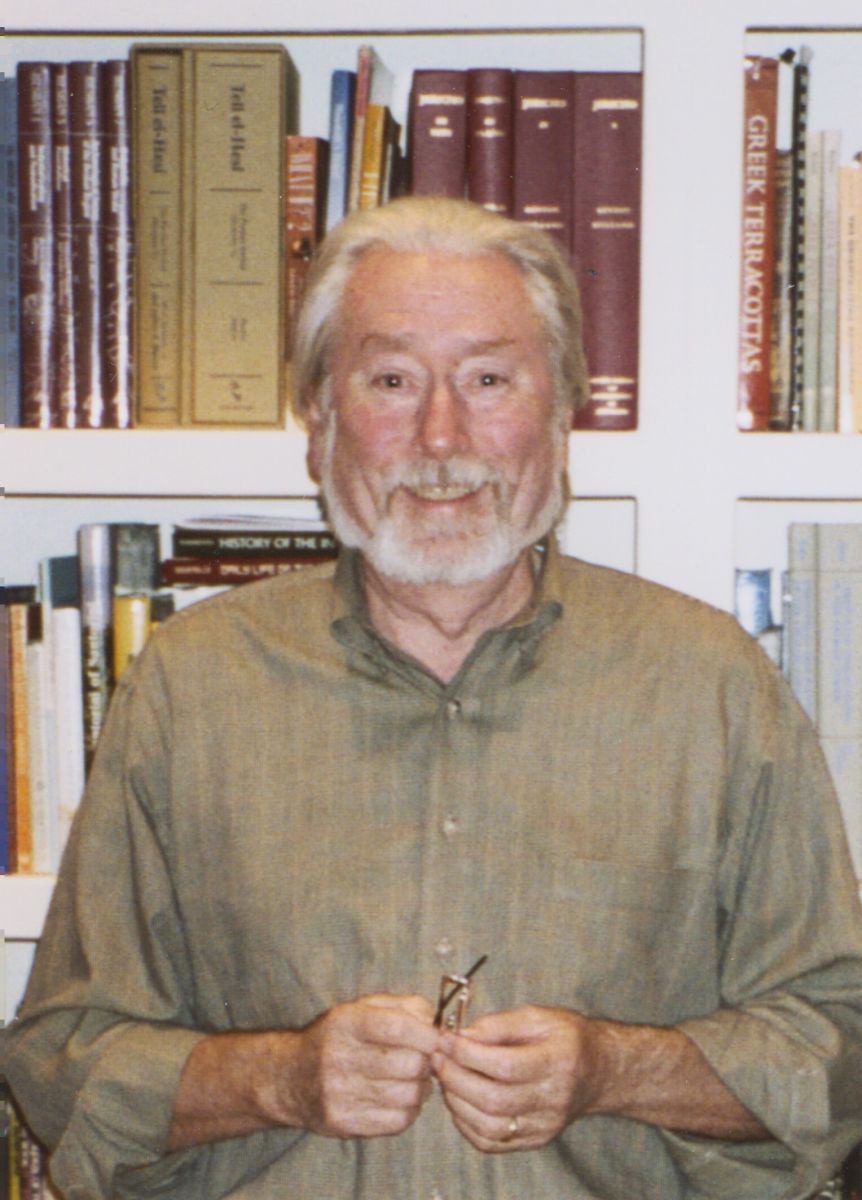
2006
The Archaeological Institute of America honors Dr. Albert Leonard, Jr. as the recipient of the 2006 Excellence in Undergraduate Teaching Award. Dr. Leonard is a Professor in the Department of Classics at the University of Arizona. His broad experience and academic interests have led to joint appointments in the Department of Near Eastern Studies and the Department of Anthropology.
Albert Leonard completed his B.A. in Classics at Boston University, where his advisor was Professor Emily Vermeule. He completed his graduate degrees at the University of Chicago, his M.A. in the Department of Classics, and his Ph.D. in the Department of Near Eastern Languages and Civilizations. He is a member of numerous professional organizations and has served on the boards of the American Schools of Oriental Research, the Cyprus American Archaeological Research Institute, and the Arizona Humanities Council.
Dr. Leonard began his teaching career at the University of Minnesota in 1977. He subsequently moved to the University of Missouri at Columbia, and finally to the University of Arizona, where he has worked since 1985.
Dr. Leonard has been an evangelist for archaeology during his tenure at Arizona. Although a senior professor, he chose to dedicate himself almost exclusively to teaching introductory classes for undergraduates, including courses on Egyptian, Greek, and Near Eastern Archaeology. The College of Humanities at Arizona recognized him as one of its most gifted instructors in 2004-2005 when he received the College’s Distinguished Undergraduate Teaching award. His dean reports that Dr. Leonard regularly teaches courses enrolling hundreds of students; in some years, his annual enrollments have approached one thousand. Students note eager competition to secure one of the coveted spaces in his courses. His department chair states that, despite their popularity, Professor Leonard’s courses are known for their rigor and high academic standards.
Students in Dr. Leonard’s classes experience riveting lectures that are scholarly, yet presented in a witty and humorous manner. One student said, “I gravitated to the front and center of the auditorium… I was hinged on his every word.” They comment especially on his clarity and willingness to explain difficult subjects, sometimes in unconventional ways: a class on Egyptian archaeology might include an analysis of a depiction of a Hawaiian myth to make a point about archaeological interpretation. A real risk in a large lecture course is an impersonal relationship between students and teacher. Albert Leonard’s students state emphatically that he takes a personal interest in them, frequently encourages them to see him outside of class for help, and makes time available to them. Perhaps the highest tribute was paid by an international student who noted that many students seemed to skip other classes regularly—but not Professor Leonard’s!
Professor Leonard’s research and scholarly publications are so extensive that no short account can do them justice. Archaeological fieldwork has taken him to Italy, Portugal, Cyprus, Egypt, Jordan, and Greece. He is the leading authority on Mycenaean pottery in the Levant and Near East. He is the author or editor of ten books; he has published scores of articles. Albert Leonard is truly the archetype of the teacher-scholar. The Archaeological Institute of America is delighted to recognize Albert Leonard, Jr. as the 2006 recipient of the Excellence in Undergraduate Teaching Award.
2005
The Archaeological Institute of America is pleased to name Eric H. Cline as the recipient of the 2005 Excellence in Undergraduate Teaching Award. Dr. Cline teaches at The George Washington University in Washington, DC, where he is an Associate Professor of Classics and Anthropology and also serves as Chair of the Department of Classical and Semitic Languages and Literatures.
Eric Cline received his A.B. (cum laude) from Dartmouth College in Classical Archaeology and Anthropology. He completed his M.A. at Yale in the Department of Near Eastern Languages and Literature, and his Ph.D. in Ancient History at the University of Pennsylvania. In the course of his education, Dr. Cline was exposed to some of the most dynamic and thought-provoking teachers in contemporary archaeology, including Jeremy Rutter, Sarah Morris, Frank Hole, and J.D. Muhly — proof positive of the impact that great teaching can have on students.
Before beginning his current position at The George Washington University, Eric held a series of visiting appointments, including positions at California State-Fresno, Miami University of Ohio, Xavier, Stanford, and the University of Cincinnati. In all of these positions, he compiled an outstanding and enviable record of teaching excellence. A colleague at Stanford University flatly states that Eric is the best undergraduate teacher he knows, one able to inspire even non-majors in required general education courses. A colleague at George Washington notes that his teaching evaluations range “from the positive to the rapturous; there were no negative evaluations at all.” Yet another praises his ability to integrate method, theory, and presentation of specific sites in a seamless and entirely lucid manner. His respect for his students and passion for their successful learning shines through in their observations. Many of them note the sheer amount of time he dedicates to advising and the care with which he counsels his advisees. Perhaps most revealing in this regard is a comment made by a student: “I feel that he made my success a priority and did everything possible to ensure that I achieve my goals…I hope that I may one day make the same positive impact on my students that Dr. Cline has made on me.”
Despite a heavy teaching and advising schedule, Eric is a highly prolific scholar. He has authored or edited four books, as well as dozens of articles and reviews. He has delivered numerous papers at professional conferences and scores of public lectures to a wide variety of audiences. The breadth of his scholarship is wide, ranging from trade in the Aegean Bronze Age to ancient earthquakes to the stratigraphy of Megiddo. His ability to make complex subjects accessible to students and the general public is outstanding: his most recent book, The Battles of Armageddon: Megiddo and the Jezreel Valley from the Bronze Age to the Nuclear Age, received the Biblical Archaeology Society’s “Best Popular Book on Archaeology” Award and was a main selection of the Natural Science Book Club. His classes are enriched by his extensive field experience in excavation and survey at sites such as Megiddo, Pylos, Palaikastro, Nea Paphos, the Athenian Agora, and Tel Anafa.
Professor Eric Cline is a model of an outstanding undergraduate teacher. The Archaeological Institute of America is delighted to recognize Eric Cline as the 2005 recipient of the Excellence in Undergraduate Teaching Award.
2004
It is with great pleasure that the Archaeological Institute of America names Professor Michael B. Cosmopoulos of the Department of Anthropology at the University of Missouri-St. Louis as the recipient of the 2004 Excellence in Undergraduate Teaching Award. Professor Cosmopoulos is described uniformly by students and colleagues alike as having boundless energy and passion for teaching. The AlA can be proud to honor so outstanding a colleague.
Michael Cosmopoulos received his BA (summa cum laude) from the University of Athens in Archaeology and History; his MA and Ph.D. degrees in Art History and Archaeology were awarded by Washington University, St. Louis. After teaching for more than ten years in the Department of Classics at the University of Manitoba, he is now Professor of Archaeology at the University of Missouri-St. Louis, where he teaches courses in Greek archaeology, culture, history, and mythology. Dr. Cosmopoulos throughout his career has promoted both ancient and modem Greek studies; in addition to being Professor of Archaeology, he has been since 200 I the Hellenic Government-Karakas Foundation Professor of Greek Studies at UM-St. Louis. An extremely active researcher, he currently directs three field projects in Greece: the Eleusis Archaeological Project, the lklaina Archaeological Project, and the Oropos Survey Project. He has authored several monographs and over seventy papers.
Michael Cosmopoulos is no stranger to recognition of his teaching. At the University of Manitoba, he received a Merit Award for teaching in 1991 and the Olive Beatrice Stanton Award for Excellence in teaching in 1999. He was even nominated for the national Canadian Professor of the Year award while at Manitoba. Students at Manitoba and UM-St. Louis report that Michael brings an infectious enthusiasm for his subject to the classroom: one of them suggests that the undergraduate professor needs to be … energetic, exciting, provocative, scholarly, humorous, serious, and most of all understanding towards the ever-changing minds of the students-and then reports that this is an accurate description of Michael Cosmopoulos. Although his expectations are high, students believe that he provides the help they need to excel. A department chair reports that growth in enrollment and majors was initiated by the spark Michael Cosmopoulos brought to his program: If he now teaches in a Department and University where significant numbers of students either specialize in classical studies or are attracted to the Classics Department for optional courses, it is largely because Cosmopoulos himself has had a large part in creating the necessary conditions.
A special aspect of Michael Cosmopoulos’ teaching has been his work with undergraduates in the field. Participants report that he is thorough in introducing them to the techniques of archaeological survey and brings in specialists to broaden their knowledge. He makes a constant effort to connect what they learn in lectures with what is actually done in the field. A humane project director, he enriches his students’ field experience with trips to archaeological sites and creates a strong sense of camaraderie among the entire team.
Professor Michael Cosmopoulos stands as an exemplar of an outstanding undergraduate teacher. TheArchaeological Institute of America is delighted to recognize Michael Cosmopoulos as the 2004 recipient of the Excellence in Undergraduate Teaching Award.
2003
It is with great pleasure that the Archaeological Institute of America names Professor David Warren McCreery as the winner of the Award for Excellence in Undergraduate Teaching for 2003. Professor David Warren McCreery is a specialist in the Early Bronze Age archaeology of the Near East with an emphasis on palaeoethnobotany and early agricultural practice. He has worked in Cyprus and Jordan since 1975, and he is currently the co-director of the Tell Nimrin excavations, a position he has held for the past thirteen years.
After receiving his PhD from the University of Pittsburgh, he continued to study at universities in Geneva, Leiden, Zurich, Heidelberg, and Edinburgh. He then moved on to Amman, Jordan, to become the Director of the American Center of Oriental Research from 1981 to 1988. In 1988 he joined the faculty of Willamette University in Salem, Oregon, where he is a professor in the Department of Religion.
Among his many professional contributions, Professor McCreery has been active in several organizations, including the American Schools of Oriental Research, the American Center for Oriental Research, and the AIA. He has been the President of the Salem Society of the AIA since 1997.
The Teaching Award Committee chose Professor McCreery for this award from a field of outstanding candidates because of his record of undergraduate teaching at Willamette University. His nomination was accompanied by an unusual number of supporting letters from administrators, colleagues, and students familiar with his teaching. These letters document, to quote from his nomination, his strong commitment to quality undergraduate education in a small liberal arts school where he distinguishes himself as an educator by consciously integrating his own research and the most current research of others into course development and classroom teaching, and as a result encourages and inspires young undergraduate scholars to pursue archaeology and to contribute to the enhancement of the discipline.”
McCreery offers a two-semester sequence in archaeology every year (with an emphasis on Syro-Palestinian Archaeology) as well as courses in religion, Hebrew, and archaeological methods. He also conducts a campus dig and takes students with him to his excavations in Jordan. He emphasizes hands-on training in field techniques and laboratory work. Students stress his innovative teaching methods, including oral final examinations, writing-centered projects, and laboratory training in the analysis of soil samples (among other things). They find his courses to be “challenging, interesting, and exciting.”
In addition to being described as committed and innovative, David McCreery is also described as kind, attracting the best students, and “stimulating students to think in new ways.” His courses are characterized as “legendary.” He has been known to conduct excavations on the Willamette campus where students excavate the “ancient buildings” belonging to the university. Once he led his students in discovering forgotten nineteenth century time capsules providing them with, in the words of one writer, an “unforgettable taste of the excitement of discovery in archaeology.”
Students are unanimous in their praise. One letter informs us that to explain why Prof. McCreery should win this award was like being asked …to explain in 500 words or less why Michelangelo is a great artist…there are too many wonderful things to say! He embodies, we are told, the special Willamette spirit of caring, competence, creativity, and compassion. Professor McCreery is also characterized as a catalyst for interest” in archaeology for the larger community. As the enthusiastic President of the Salem AIA society, he oversees a program with up to 13 events per year that attract an average attendance of more than one hundred people for each session.
In short, it is abundantly clear that Professor McCreery is the kind of teacher who has made the discipline of archaeology “come alive” for generations of undergraduate students. The final word best comes from one of the letters of support, where the writer says, “I look with some envy at the courses he has taught and the excavations he has directed…sometimes one would like to turn the clock back and be an undergraduate again oneself, just to experience the sudden enthusiasm that comes from being in the presence of a person of rare knowledge who possesses the capacity and desire to share his understanding with others as David McCreery does in every avenue of his professional life.”
2002
It is with great pleasure that the Archaeological Institute of America presents the Award for Excellence in Undergraduate Teaching to Professor P. Nick Kardulias. Professor Kardulias has taught archaeology and anthropology at Youngstown State University, Kenyon College, and, since 1993, at the College of Wooster where he is an assistant professor in the Department of Sociology and Anthropology and the program in Archaeology. Professor Kardulias is a specialist in Aegean prehistory and has also taught courses in lithics, ethnoarchaeology, North American archaeology, cultural resource management, political anthropology, the history of classical antiquity, and a wide range of other topics. His excellence in undergraduate teaching is demonstrated, however, not in the broad range of his research and teaching subjects alone, but in the results. The letters written in support of his nomination by present and former students and colleagues provide ample evidence of his commitment and successes as a teacher of archaeology. If we can sum up his achievement in the words of one of his colleagues, “[Nick] is a master of the leading question, forcing students to reach beyond simple recitations of facts to the implications of those data for understanding human history and behavior. He encourages his students to think with, and not just about, archaeological materials.” All those in the profession of teaching know how significant an achievement this is.
The letters in support of his nomination describe his teaching methods as innovative and effective, combining many different modes of learning. These same letters outline Professor Kardulias’s outstanding commitment to learning outside the classroom in the form of fieldtrips, hands-on experience, even sporting activities, and the occasional dinner at home with his mother. They also tell of an extraordinary degree of personal attention to students. He organizes student groups, arranges extracurricular events that involve hundreds of students in everything from atlatl throwing and flintknapping to simulated digs and the mounting of exhibits of artifacts. He has encouraged students to do fieldwork and worked tirelessly to help them find transportation to field locations in Ohio, Cyprus, and Greece. He helped students to find funding for these activities, and in the field gave unstintingly of his time, his experience, and his knowledge. One writer says: “Nick’s humor, intelligence, and almost encyclopedic knowledge [are] a journey in archaeological history in general and his ability to reach out and connect with students [is] amazing. He seems to understand people’s questions before they even asked them, and his ability to explain concepts in a very clear and concise way is something I still envy when I myself am in front of a classroom.”
As part of his commitment to students, Professor Kardulias has worked with students to co-author published articles and he has supervised many undergraduate honors theses. To do this he took on extra advising loads, and in the words of one writer, “[w]hile most professors work with between five and ten students as the most [on honors theses], Nick has regularly advised…fifteen students a semester…while teaching a full course load and serving on multiple committees.” Several students state that their continuing interests in archaeology stem from their contact with Professor Kardulias, and the number of his students who have gone on to graduate school, and an academic career is indeed a remarkable testimony to his effectiveness as a teacher. As one of them says, “If not for him I can very truthfully say that I would not be where I am today.”
Professor Kardulias is praised not only for his global approach to teaching and his excellence and conviction but also as “unabashedly honest, dedicated, sincere, concerned, and kind.” One writer says, “It is for his demeanor and vision that I value Professor Kardulias as my purest role model.” This same informant goes on to say “[by] personal example he imparts that same precious lesson to those who continue their higher education in archaeology and to those who choose other professions.” Yet another student says, “…I regard him as a great mentor and friend,” while another writes, “his vibrant humor, love for discipline, and obvious joy in teaching were and still are an inspiration…”
The testimony from students provides ample evidence that Professor Kardulias has had a major effect on his students. One writes, “I will never forget the time that Nick enlisted me…to participate in a lithic microwear study…[w]hen the time came to undertake the experiment we found ourselves in the basement of…a 19th century farmhouse…cleaning a none-too-fresh deer carcass with razor-sharp, inch-sized pieces of chert! The fact that the basement had a dirt floor and a single naked lightbulb hanging from the ceiling only served to heighten the similarities between our predicament and any number of B-grade horror movies I had seen…”. The same writer continues, “I think I probably covered a very large chunk of north-central Ohio with Nick, through snowstorms, ice, and rain, and I loved every minute of it!”
The evidence of Professor P. Nick Kardulias’s excellence as an undergraduate teacher of archaeology is abundant and strong, and the Archaeological Institute of America is proud to recognize his passion, commitment, and success by giving him the Award in Undergraduate Teaching for the year 2002.
2001
It is with great pleasure that the Archaeological Institute of America presents the Award for Excellence in Undergraduate Teaching to Professor Kevin Glowacki of the Department of Classical Studies at Indiana University at Bloomington. Professor Glowacki is an outstanding teacher described as enthusiastic, dynamic, innovative, and seriously engaged with students. He has tremendous faith in his students’s goals and abilities and is clearly someone who, as one student noted, engages with his students as a friend and colleague in the enterprise of education.
Kevin Glowacki received his AB in Classics with Honors from Loyola University and went on for his MA and, in 1991, Ph.D. from Bryn Mawr. After stints of teaching at Harvard and the University of Cincinnati, he joined the faculty at I.U. in 1993 where he is now an Assistant Professor teaching, among other things, classical art and archaeology, art and archaeology of the Aegean, topography and monuments of Athens, Greek sculpture, Greek myth and image in ancient Greece, and Classics and Computers. His strong interests in undergraduate education extend to national service. He has served on the AIA’s Education committee and the committee on the Future of Old World Archaeology in Higher Education. He has also served the AIA successively as treasurer, vice president, and president of the Central Indiana Society.
The selection committee was impressed by Professor Glowacki’s vision and drive. The committee learned that he arrived at I.U. at a time when the program in Classical Archaeology was at a low point with flagging undergraduate enrollments. Glowacki worked, in the words of the nominator, at “creating students.” Within six years he helped build a robust program with more than 30 undergraduate majors concentrating in Classical Archaeology. He is described as the “heart and soul of this rejuvenation,” presenting “serious material to students who are seriously engaged.” Again in the words of his nominator, “I was floored the first time I visited one of his classes and saw students grab for their notebooks when Glowacki threw out a question about the dating of a piece of archaic statuary.” Another colleague wrote that “Kevin’s reputation among students is so positive that anthropology majors who used to avoid classical archaeology like the plague take at least one or two courses with him and come away encouraging their classmates to do the same. It is no surprise that he has become quite involved with the university Honors Program and that many of the Honors students choose to work with him.” And no wonder, as another colleague writes that he is “the most passionate and committed teacher I have ever encountered, who is experimental and open to new pedagogical ideas.”
Kevin Gloackie attracted some of the best of I.U.’s undergraduate students to the study of Classical Archaeology, in part because of his innovative use of computer technology. His use of web sites to create interactive links with his classes began in the mid-1990s at a time when other faculty were only just becoming familiar with this technology, and his web sites and other computer projects served to put Classics at Indiana among the first departments to make extensive use of these new technologies. His Web site “The Ancient City of Athens,” for instance, makes available his digitized images of the city and much more for instructors around the world and receives hundreds of thousands of visits from students and colleagues alike. These achievements earned Kevin Glo Teaching Excellence Recognition Awards from I.U. in 1998 and 2000.
Both colleagues and students are unanimous in their admiration and praise for Kevin. He is clearly an honored member of his department and university, a good friend to all, and above all an able and effective undergraduate teacher who is doing much to shape the new generation of archaeologists at Indiana University. For these reasons the Archaeological Institute of America is proud to name Kevin Glowacki as the winner of the Award for Excellence in Undergraduate Teaching for the year 2001.
2000
The Archaeological Institute of America is proud to bestow the 1999 Award for Excellence in Undergraduate Teaching on Professor Patrick Thomas of the University of Evansville. In the words of one of his colleagues, “Pat Thomas, while [he is] not the founder of the program in Archaeology/Art History, [the program] has only succeeded through his extraordinary vision and efforts.”
The key to this success is a tireless devotion to teaching. Even while serving his department as chair, Pat Thomas arrives on campus commonly at 5:30 a.m. to prepare for classes and is still at his post 12 hours later to dine with students or attend meetings of the undergraduate archaeology club. Despite his duties as chair and as advisor to 40 undergraduate majors in archaeology, Dr. Thomas teaches seven or even eight regularly scheduled courses every year, finding time to comment extensively on students’ written work and to be innovative with creative assignments and probing questions designed to challenge his students to master the field. One would expect the weight of such a schedule to be reflected in less than spectacular student evaluations, but that is not the case. Dr. Thomas is always ranked in the top 10% in all categories on student evaluations. The reason for this is clear to one of his colleagues, who writes, “For Pat, education is the goal of everything he does.”
Whether in his regular meetings with the majors to discuss study habits and career options, driving students to weekend excavations, or leading tours of local museums, Pat Thomas’s unstinting devotion to undergraduate education in archaeology is outstanding.
Student recommenders describe him as “caring and sympathetic,” noting that “he encourages independent thought on every subject,” and finally, in the words of one student, that “he is not simply a model for excellence in undergraduate teaching, he is the exemplary model.” Dr. Thomas specializes in archaeology, but it is fitting to acknowledge that his excellence as a teacher extends to other fields. Pat teaches across the curriculum, from ancient languages to the University’s World Cultures Program, where he is “universally regarded,” in the words of a colleague, “as one of the best teachers in the program.” Another colleague notes that Pat’s success as a teacher can be measured against a national scale. In a national teaching evaluation program developed by Kansas State University, Pat ranked in the 99th percentile in the category of Overall Excellence of Instructor.
Pat’s broad range of interests is reflected in his special areas of teaching, which encompass Aegean prehistory, Greek and Roman archaeology, Near Eastern archaeology, Anatolian archaeology, and Classical studies. The Award Committee noted that he has taught 21 different courses in these subjects over the last 10 years, covering the whole field of archaeology from language instruction, to ancient technology, to Greek painted pottery, to archaeological method and theory.
Professor Patrick Thomas has demonstrated in manifold ways his concern for and success in the undergraduate teaching of archaeology. Even in the smallest of gestures, such as e-mailing his students before exams to wish them good luck, Pat Thomas exemplifies all that is best in a teacher. Pat Thomas’s tireless devotion is here gratefully acknowledged as representing the highest standards of the Archaeological Institute of America’s Award for Excellence in Undergraduate Teaching.
1999
The 1998 recipient of the Archaeological Institute of America’s Undergraduate Teaching Award is Susan E. Alcock of the University of Michigan. Sue Alcock has been a remarkably innovative and successful teacher for the Department of Classical Studies. Rather than focus on traditional genre or period divisions, her undergraduate courses deal with important thematic topics such as Food in the Ancient World: Subsistence and Symbol (which also had an accompanying web site and a student-organized museum exhibition), Death in the Ancient World, and a seminar for first-year students called Death on Display in the Ancient World. In addition, she substantially revised and reinvigorated two standing courses: Introduction to Field Archaeology and Roman Archaeology. Enrollments for the Introduction to Field Archaeology increased by a factor of five after a single teaching—it now enrolls over 200 students.
Susan Alcock’s courses integrate a variety of ways and methodologies on how to look at the past. Students praise her ability to make them see issues in a new light. As one said, Sue’s thinking is remarkably synthetic and wide-ranging; she sees connections and mutual intellectual interests across disciplines which in turn shed new light on given issues. This has inspired me to take classes and seek out discussion partners in comparative literature, anthropology, and in other areas of art history. She is often cited by students for teaching them to think critically, to go beyond their immediate preconceptions, and to question the current state of scholarly knowledge.
Professor Alcock’s excellence in teaching has been recognized already by the University of Michigan. She has received the Class of ’23 Award in 1995 for excellence in undergraduate teaching, one of the most competitive prizes in the University, the Michigan Association of Governing Boards award for a Distinguished Faculty Member in 1996, and, most recently in 1998, the University’s highest honor for a junior faculty member—the Henry Russel Prize. Her citation for the Class of ’23 Award neatly sums up her strengths as a teacher: For her dynamic and enthusiastic teaching, her use of innovative and multimedia materials, her talent for making difficult material accessible and bringing the past to life, her transmission of professional and ethical standards, her time spent on field trips to show students the uses of the past, and, above all, her genuine concern for her students and their intellectual growth.
But beyond the prose of the University’s citation, perhaps her students say it best in the end: Alcock is amazing. I want to be her when I grow up. That is the best praise of all—a healthy sign that the future may hold yet another archaeologist for the profession, the ultimate legacy of a good teacher.
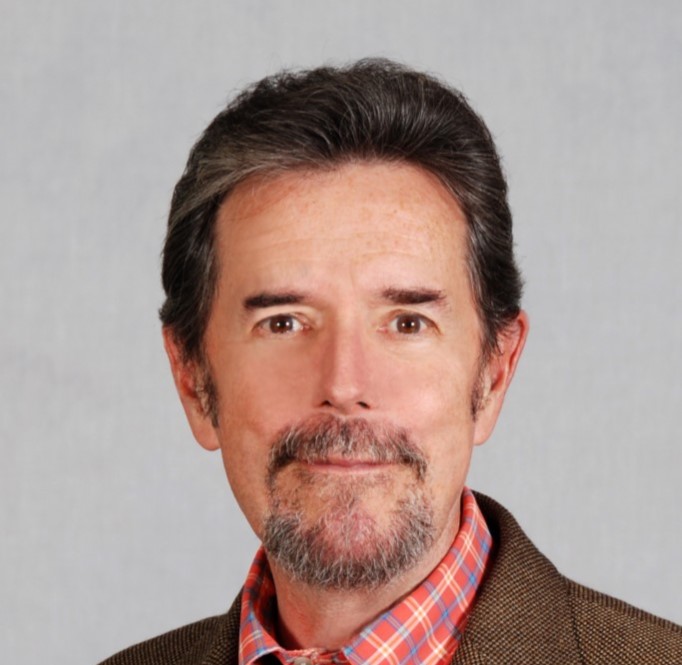
1998
Curtis N. Runnels is the 1997 recipient of the Archaeological Institute of America’s Excellence in Undergraduate Teaching Award. Currently Associate Professor in the Department of Archaeology at Boston University and member of the faculty since 1987, Runnels has teaching responsibilities in the areas of prehistoric technology and culture, Palaeolithic archaeology, the prehistoric Aegean, and the methods, theory, and history of archaeology- a curriculum that includes a broad range of undergraduate and graduate courses.
Runnels’ most popular undergraduate course is Great Discoveries in Archaeology, with an enrollment of over 200, which serves as a humanities requirement for social science and science majors. Before Runnels took it over, this course was known as Mummies for Dummies, the quintessential gut course of a large university. He has developed it into a rigorous survey course that imparts not only an idea of important archaeological discoveries, but also an understanding of the origins of civilization and the history of archaeological thought. The toughening up of its requirements has enhanced rather than diminished enrollments and the course is now a major recruiting device for the university’s popular undergraduate archaeology major.
Runnels’ most innovative course is “Prehistoric Technology” a hands-on experience with a variety of prehistoric technologies. According to the syllabus, in this course students investigate the reciprocal relationships that exist between societies and technologies in the past, and by implication, also in the present. Students are introduced to the processes of creating stone tools, pottery, basketry, and metals, in a laboratory format that encourages their own explorations. Final projects in the course have included the production of olive oil using a replica of an ancient Roman press, the creation (using this extracted oil) of Mycenaean perfume using a recipe drawn from Linear B texts, and the processing and dyeing of wool using organic dyes. Students in this course not only learn a great deal about the history of technology, but also gain a perspective on the complexity of the cultures within which these technologies were developed.
Finally, Runnels helps to round out the undergraduate archaeology major’s experience with a capstone course entitled Methods and Theory of Archaeology, a course in which he covers the principal theoretical and methodological approaches to archaeology and their history of development.
Curtis Runnels, according to both students and colleagues alike, is praiseworthy for the exceptional breadth and depth of his archaeological knowledge, which goes well beyond his personal research interests. He is famous for his infectious, engaging presentations that immediately involve the audience. As one student described it: It is no mystery that Professor Runnels’ courses are so popular … His lecture style, which weaves hard data, anecdotes and humor into a fascinating story, is engaging and stimulating … difficult concepts become manageable with his clear presentation, and boring mounds of stone flakes and other debris become interesting and important with his enthusiasm.” Another likens his success in the classroom to his possessing the style of “a storyteller who weaves the facts and drier bits of information into a lively narrative that draws the students into the experience.
For his enthusiastic and engaging presentations, his innovative hands-on style of teaching, and his unforgettable flint-knapping demonstrations, the Archaeological Institute of America is pleased to award its Excellence in Undergraduate Teaching Award to that storyteller in the classroom, Curtis Runnels of Boston University.
1997
Frederick A. Cooper of the University of Minnesota is the 1996 recipient of the Archaeological Institute of America’s Excellence in Undergraduate Teaching Award. It is fitting that Professor Cooper be the first recipient of this new award. He has been teaching undergraduate students for over 33 years at a major research university, a duty he could have easily turned over to younger colleagues. He teaches a wide range of subjects, from general introductory courses in art history to specialized seminars in classical archaeology, to a wide range of students from many disciplines. Deeply committed to the teaching of archaeology, he continues to bring new methods, disciplines, and technologies into both the classroom and the field. His letters of support and syllabi are a testament to his intellectual energy, tireless enthusiasm, and visionary pedagogical skills.
Professor Cooper’s contributions to undergraduate education have been recognized by his University with three teaching awards–the maximum number one professor can receive. They span the length of his career–University of Minnesota College of Liberal Arts Distinguished Teaching Awards were presented in 1972/1973 and 1989/1990 and the Morse Minnesota Alumni Award for Outstanding Contributions to Undergraduate Education was awarded in 1991. In addition to using his award money to finance undergraduate research projects, he has helped students raise their own funds to pursue their ideas. According to his departmental chair, Fred Cooper and his students have set a record in the University’s Undergraduate Research Opportunities Program for receiving the most grants and awards for their research initiatives.
One of his most enduring achievements as a teacher has been in the field. Fred Cooper has trained hundreds of students on his field projects in Greece: the Bassai Project, which, beginning in the late 1960s, has provided apprenticeships in architecture for students at the American School of Classical Studies at Athens and for numerous aspiring architects from Europe and the United States: the three-year-long Nemea Reconstruction Project; his restudy of the palace and environs at Pylas; his expeditions in the Manito find ancient quarries; his environmental surveys using satellite spectral data and GIS; and his study of Greek vernacular architecture. No matter what their primary academic interest, Fred Cooper taught his students the fundamentals of hands-on archaeological fieldwork, including both traditional methods and new technologies.
Participants in his projects stress the unique and heady brew of intellectual and cultural experience that Fred Cooper provides. One writes: He teaches by the example of his life, and it is his unhesitating and close collaboration with the Belgians and the Germans and the Greeks, with geologists and architects and botanists, that provides his students rich lessons in the value of interdisciplinary effort and internationalism for the accomplishment of intellectual goals that begin to free them–many for the first time–from the strictures of academic and cultural provincialism. Working with Fred in the field is more than archaeological training; it is a life class, and there are few students who come away from one of his projects unchanged…. As much as any other experience in my adult life, that of living and working with Fred Cooper has determined my view of how the study of antiquity should be approached and how life should be lived, and there are dozens of others out there who would say the same.
Fred Cooper has been a constant and vital presence in the field for over 30 years. He has unselfishly and unceasingly shared his journey of discovery. As his students write, it is impossible to separate Fred the field archaeologist and scholar from Fred the teacher: the study of antiquity is his life, his all-consuming passion, and he teaches most profoundly through the example of his life. He has personally and directly touched students of all sorts and from several nations. Many have been inspired to go on to higher degrees in ancient studies (the list is impressive, and their loyalty to Fred steadfast) or have made antiquity one focus of their chosen field, while others have gone on to something entirely different. All left Greece and Fred’s projects with a sense that they had experienced something remarkable.
For his outstanding and innovative pedagogy and for his deep love of archaeology, the Archaeological Institute of America is pleased to present its first Excellence in Undergraduate Teaching Award to Frederick A. Cooper of the University of Minnesota.